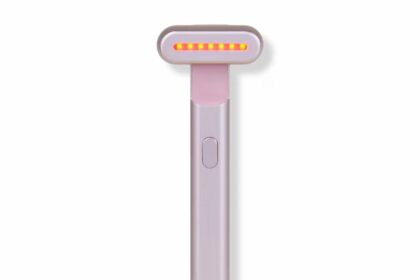“Hair training” entails progressively increasing the time between each wash of your hair. TikTokers … [+]
Consider this to be a breath of not-so-fresh-hair trend.
Some Tiktokers have been pushing the practice of washing their hair very infrequently, like only once-a-month infrequently. They’ve been calling this “hair training,” claiming that progressively increasing the time between each wash of your hair will steadily train your scalp and hair to look and be better. TikTokers have asserted that doing so will leave you with a fuller and shinier head of hair. The gap between washes can eventually extend all the way up to, yikes, 30-days.
The hashtag #hairtraining has already gotten over 164.3 million views with many videos showing TikTokers go through weeks without washing their hair. Here’s one example:
But is this hair training practice actually supported by any scientific evidence? Well, the risks of not washing your hair for extended periods of time may make you shampoo-poo this practice.
You see there are reasons why you should wash your hair more frequently than once a month besides the desire to have friends, successful dates and people willing to share your hats. Unless you regularly wrap your head in Saran Wrap, every day stuff like dirt, dust, insects, cat dander, Cheetos and various pollutants fall onto your head. Each day, your scalp produces oil, sebum and other gunk as well. All of this can lead to irritation, itchiness, inflammation and flaking of skin. If it gets bad enough, you could actually start losing hair. That may mean less hair to train, but would sort of defeat the whole stated purpose of hair training.
There is one argument behind hair training that does have some merit. Over washing of your hair with the various chemicals in shampoo can dry out your hair too much so that your scalp may amp up the production of natural oils. But over washing would be like more than once a day rather than more than once per month. A pair of epidemiological studies published in the journal Skin Appendage Disorders found that washing hair five to six times a week was associated with greatest overall satisfaction with hair and scalp conditions.
Of course, your specific optimal frequency may vary. For example, if you have particularly oily hair or work inside a gigantic bird cage, you may want to wash your hair on a daily basis. Paying attention to the status of your scalp and hair can help you adjust your hair washing frequency. If you find your hair getting too dry, then you may want to decrease your frequency a bit. On the other hand, if your scalp is getting too itchy or your dandruff is making everything around you look like one of those snow globes, you may want to increase your frequency or use a different type of shampoo oriented towards those issues.
Hair washing frequency isn’t the only factor that affects your hair and scalp health. The type of shampoo and conditioner and their ingredients can play a big role. Regularly brushing your hair can help distribute the oil more evenly. Devices like curling irons and various chemicals can damage your hair. So hair on the side of caution and only apply to your hair what your really need.









